RSPB RESERVE DUNGENESS
RSPB Dungeness focusses on providing a safe haven for birds to rest and nest over the winter months in particular, and is shaping the environment to give them ever better opportunities.
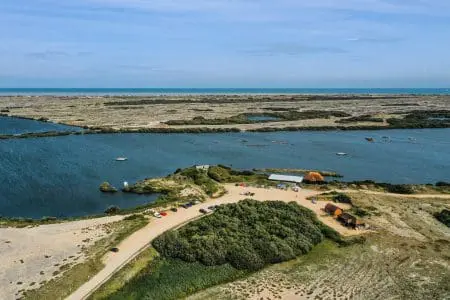
RSPB DUNGENESS NATURE RESERVE
Projecting into the sea from Dungeness, the headland consists largely of shingle. The Dungeness Reserve itself is set back from the sea, with miles of open shingle, freshwater pits, wet grassland and stunning wildflower meadows.
It is in fact the largest expanse of shingle anywhere in the world, and home to rare plants, insects and lichens. The open fresh water plays host to thousands of wintering wildfowl and nesting seabirds, while the wet grasslands and reedbeds are a great place to spot marsh harriers, bitterns and bearded tits.
A hotspot for rare species, Dungeness is the third most biodiverse site in the country for insects, including a large number of rare bees.
SPECTACULAR SIGHTINGS
Dungeness is the perfect place to watch massive migrations. Swallows, swifts and martins gather in huge numbers in the spring and autumn, arriving and leaving the country. The sight and sound of a gulp of swallows, a scream of swifts or a richness of martins are unforgettable – and the collective nouns are pretty good too!
It also boasts wonderful sunsets, the flat, open ground and wide wide sky meaning that you can celebrate the going down of the sun with nothing in the way.
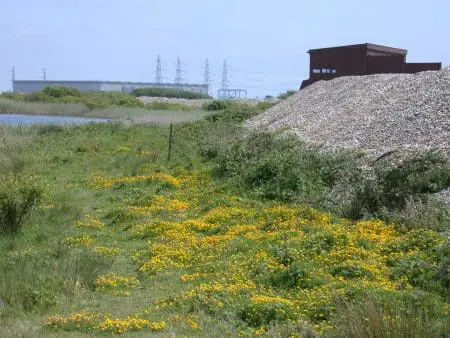
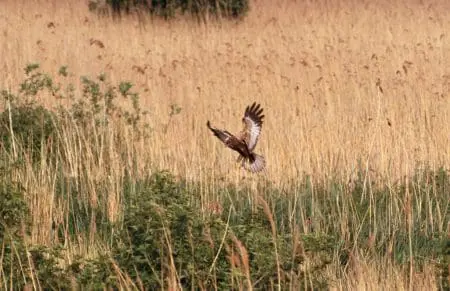
Star species include bitterns, which breed here in the spring; little ringed plovers; bearded tits; magnificent marsh harriers; wheatears; egrets and herons; and even the elusive kingfisher.
A two-mile circular track (pushchair and wheelchair friendly) takes you on a tour round the reserve, which is protected as a Natura 2000 site and a Site of Special Scientific Interest (SSSI). Because the shingle habitat is very fragile, visitors are asked to stick to the paths at all times, and dogs are only allowed on leads in the carparks – unfortunately, they have the ability to scare off any ground-nesting birds.
A SAFE HAVEN
The extremes of weather that affect Dungeness make life difficult for nesting seabirds like terns and gulls, so four manmade islands have been provided for breeding birds and provide an important roosting spot in the winter and feeding grounds for migrating birds in the spring and autumn.
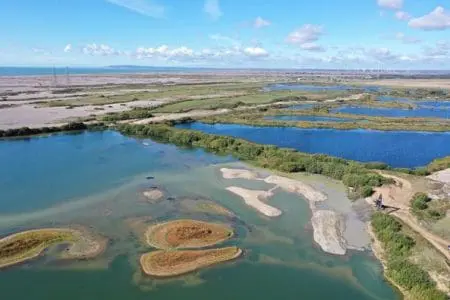
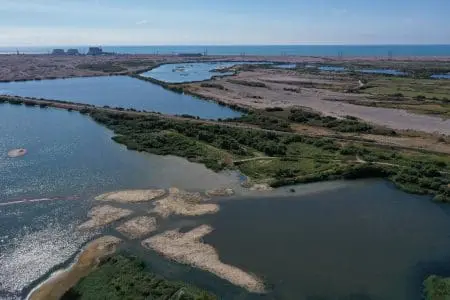
The Burrowes Pit islands are built up to between 1.28m and 1.75m high, cover approximately 2500m2 and bring the total number of islands at Dungeness to 57.
A bird hide just 10m from the islands means people can view nature up close and personal, without needing binoculars.
FACT FILE
Dungeness Nature Reserve is open daily from 9am-4pm, while the car park closes at 5pm. The Visitor Centre, shop, and takeaway refreshments are available from 10am-4pm.
Facilities include toilets, including accessible and baby-changing, binocular hire and guided walks are available, and there is a play area for the little ones.
Entry is FREE for RSPB members, £5 for adults, £2.50 for under 18s with free entry for the first child and free entry for under 5s. Student price is £3.50 and there is free entry for carers.
(And keep an eye out for other wildlife too!)
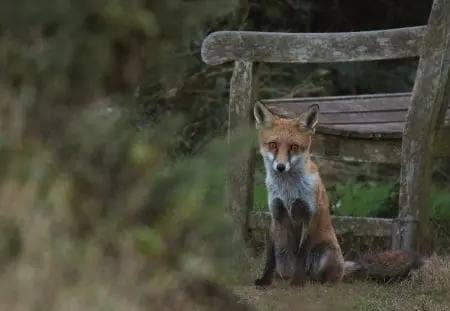
RSPB Dungeness, Dungeness Road, Romney Marsh TN29 9PN
Grid ref TRO62197
What3Words bulletins.resolved.arose
www.rspb.org.uk/reserves-and-events/reserves-a-z/dungeness/